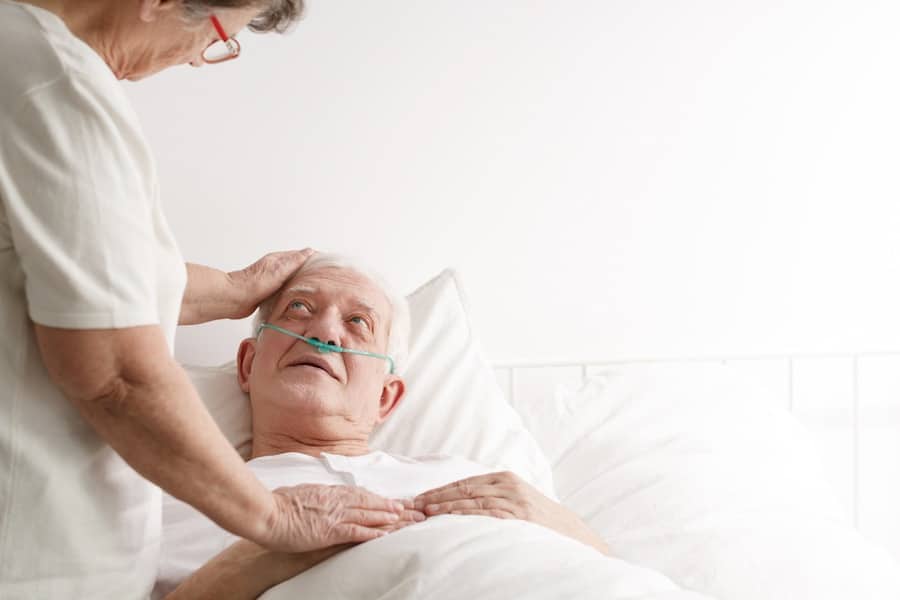end-of-life medications play an important role in every patient’s plan of care. When a loved one is receiving hospice care, family members often have questions about the medications recommended by the team, like:
“Is medication really the best route for their health?”
“How will medication make them more comfortable?”
“Could my loved one be overmedicated?”
At Envision Hospice, we know that you want the very best for them. While there may be unforeseen challenges throughout the process, you can rest assured that our team devotes the utmost care and attention to the comfort of your loved one. It is our priority. Family members like you can help keep them comfortable and safe by participating in the planning process and taking an active part in the plan of care.
Let’s take a look at what can make certain medications helpful for end-of-life care.

Pain Control
Understandably, many family members come to us with questions about medications like morphine. Questions about pain-controlling medications often come up due to concerns about:
- Extending the life of the loved one.
- Consciousness and being able to communicate.
- How the medication functions.
Medications like morphine can be really important in easing a patient into comfort and decreased pain. Some people worry that medications could cause a loved one to die faster, but this is a myth. Receiving medication can mean the difference between constant discomfort and aches, and calm, but perhaps drowsy, relief.
Drowsiness and decreased speech or communication may be a side effect of the comfort a loved one receives through end-of-life medications. Although this may be alarming at first, this is a sign that the medication is working. A patient is better able to rest and feel relief in their body when they are not in pain.
Without medications, many patients experience sharp pains, consistent aches, anxiety, restlessness, or lack of sleep. Pain can also lead to side effects like constipation and diarrhea, which in turn could lead to dehydration. It is vitally important to discuss and understand the role that medication plays in your loved one’s plan of care and ask any questions you may have. You may be facing difficult conversations with family regarding the plan, and we are here to help.

Comfort for Your Loved One and You
Making medical decisions on your loved one’s behalf may cause anxiety or stress. We understand. Keeping your loved one comfortable and safe is our No. 1 priority at Envision Hospice. We want to keep your mind at ease that the patient is receiving the very best care.
A common concern is the possibility of overmedicating a patient. Another concern may be that a loved one may become addicted to the medications or be incoherent. We never give anyone a lethal or overabundant dose of medication. The team carefully examines and discusses the dosage given to each patient before administering it. Our team of trained medical professionals gives careful attention to the medications they administer, and are happy to talk about it with you. Questions are always welcome, whether they are about medications, IV hydration, or any part of the plan of care.
We know that your concerns come from the love you have for your family member. We are on your team, and want to help you be informed, comfortable, and satisfied with the care your loved one receives. You are a valuable part of the team. Your concerns are important. We are here to talk about any and all of your questions about hospice care and end-of-life medications.
If you do have a question or would like more information about what hospice care looks like, please feel free to contact us anytime. We are waiting to hear from you!

